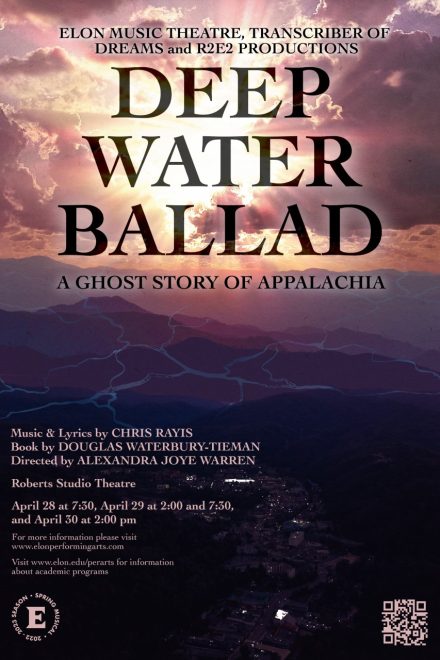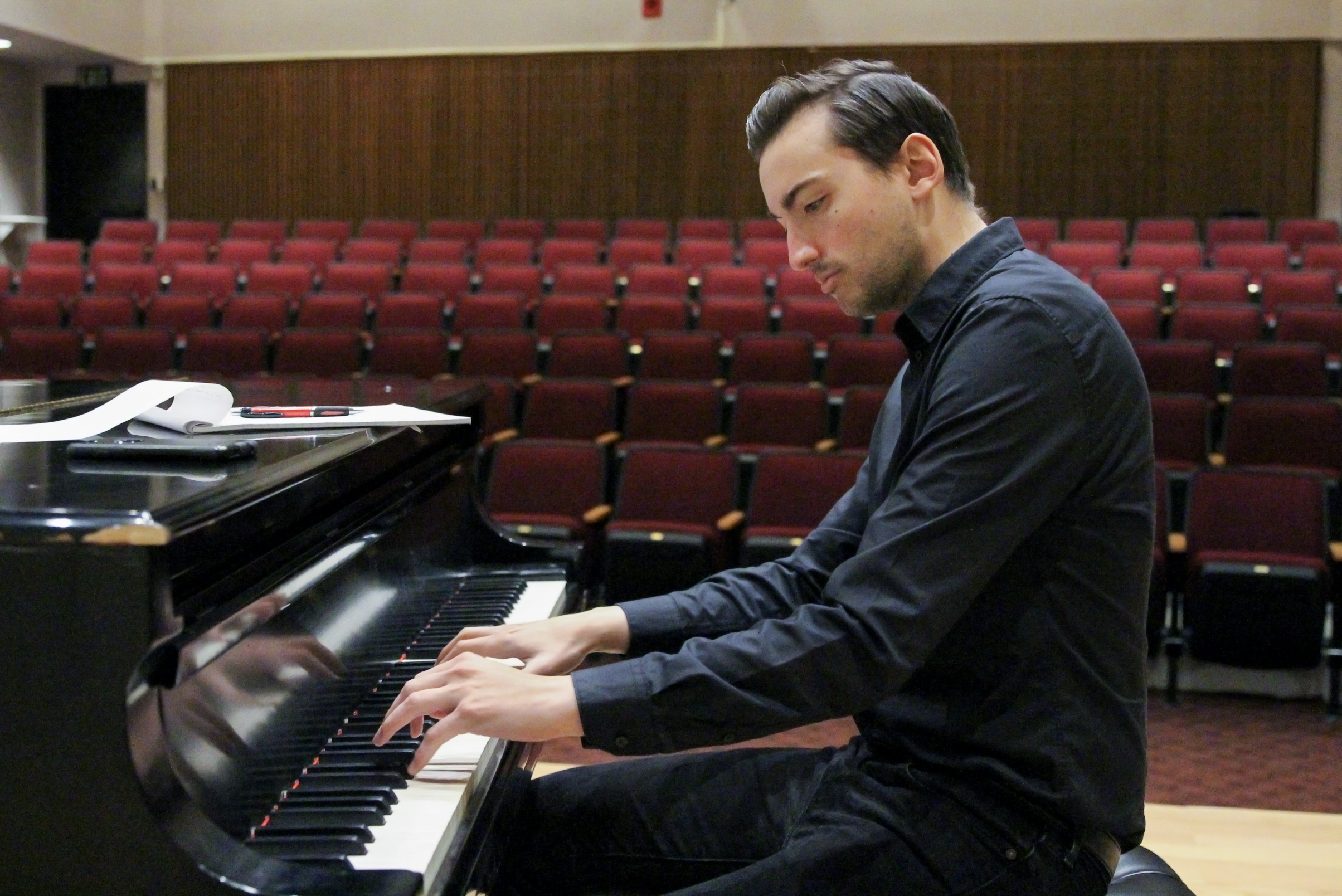The original musical by writer Douglas Waterbury-Tieman and composer Chris Rayis is set in a West Virginia town rocked by a fatal mining accident, and will have its workshop premiere in Roberts Studio Theatre April 28-30.
This weekend’s premiere of “Deep Water Ballad,” a musical set in West Virginia mining country, is the culmination of nearly 11 years of work by Assistant Professor of Performing Arts Chris Rayis.
 He began composing the music and lyrics and co-writer Douglas Waterbury-Tieman began writing the book in 2012 while working at the Cumberland County Playhouse in east Tennessee. Since then, they’ve rewritten and reworked the musical between other projects, always returning to the story of a town and families grappling with the aftermath of a fatal mining disaster.
He began composing the music and lyrics and co-writer Douglas Waterbury-Tieman began writing the book in 2012 while working at the Cumberland County Playhouse in east Tennessee. Since then, they’ve rewritten and reworked the musical between other projects, always returning to the story of a town and families grappling with the aftermath of a fatal mining disaster.
“The trick of creating work and bringing it to the performance stage is that you must believe in it, 100%,” Rayis said. “Douglas and I have set ‘Deep Water Ballad’ on the shelf many times over the past 11 years, thinking that it was a good but failed idea. Yet we’ve always found ourselves magnetically pulled back to it. The Elon workshop is the best this show has ever been, and I’m so glad we didn’t leave it in the drawer.”
The Department of Performing Arts will present performances of the musical Friday, April 28 through Sunday, April 30 in the Roberts Studio Theatre at Scott Studios/Arts West. Workshop productions help refine new works and stage test them with actors and for audiences. Each performance will be followed by a Q-and-A session with audiences for feedback.
Assistant Professor Alexandra Warren is directing the production. She said that workshopping a play or musical with writers and composers adds dimension to the usual scholarship and training that go hand-in-hand with staging a work.
“Working with a living composer allows us to discover more context between the lines and to watch how ideas or inquiry evolve into richer and more layered musical concepts. The students also benefit in being able to shape and influence these original characters and add almost a permanent shaping to an ephemeral process,” Warren said. “It’s thrilling to bring to life what’s on the page for the first time and it’s been a joy to work side by side with Chris.”
Waterbury-Tieman said he was inspired to write the story for the play from his Appalachian roots. He understood the effects mountaintop removal mining has on the land and surrounding communities and wanted to draw more attention to the practice.
“I hope that by giving names and stories to characters in our version of West Virginia we might be able to share with an audience what is at stake here and offer hope for the future,” Waterbury-Tieman said.
In keeping with the Appalachian setting, Rayis’ score features elements of folk and “hill music” of West Virginia, but also opera, contemporary musical theatre and choral music and influences from numerous composers, “with musical themes used to convey everything from the presence of spirits to a trickle of water,” Rayis said.
“I am so proud that Chris chose this project to develop at Elon and grateful that Professor Warren, the students and staff have poured so much time and care into making this piece a reality,” Waterbury-Tieman said. “Above all else, I know that the music will resonate with audiences. I have been a fan of Chris Rayis’s compositions ever since we were roommates in college. His ability to capture human emotion through melody and lyric is profound. I’ve loved the songs he’s written for this show for years and I am so excited for them to finally be shared with a wider audience.”



